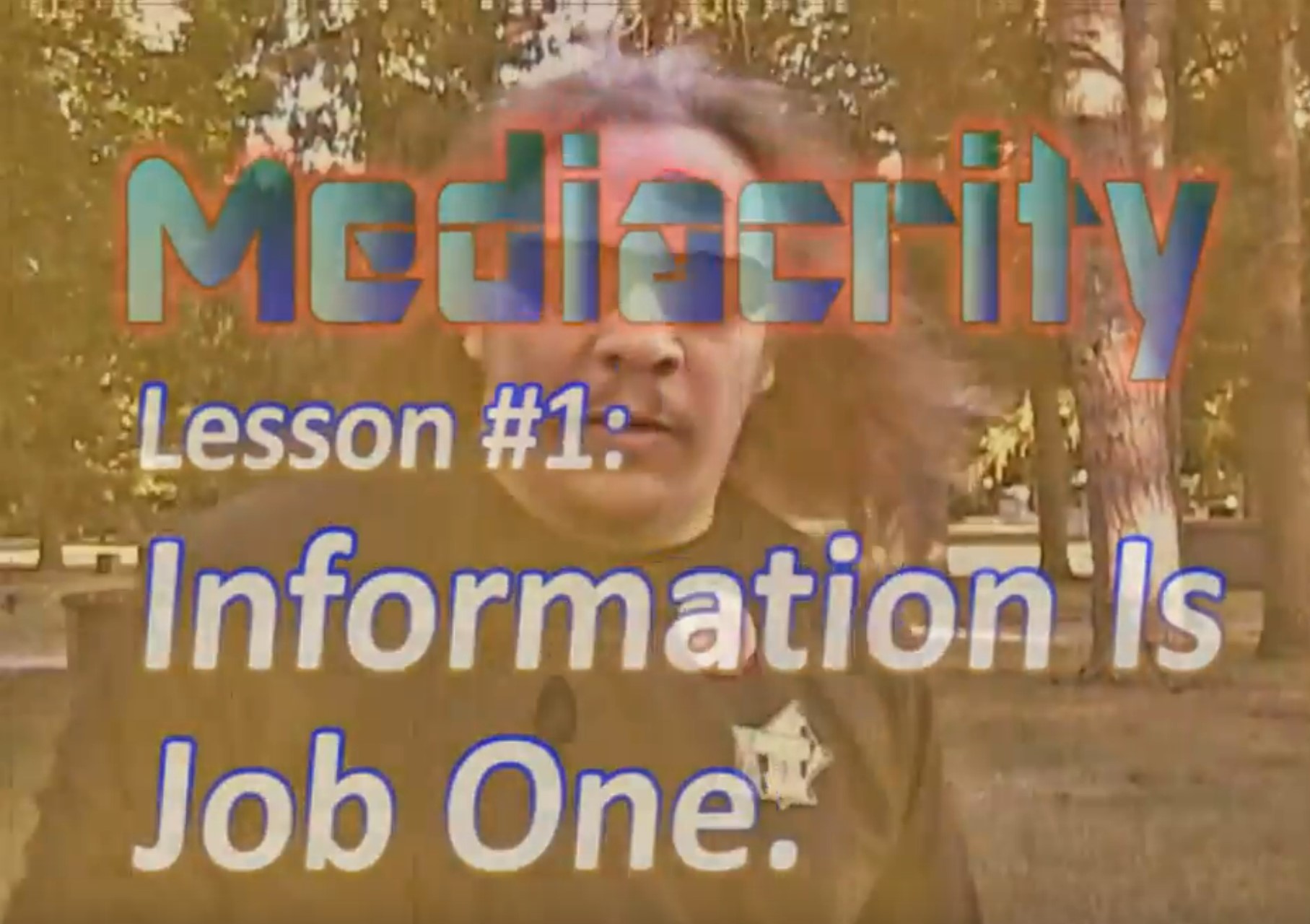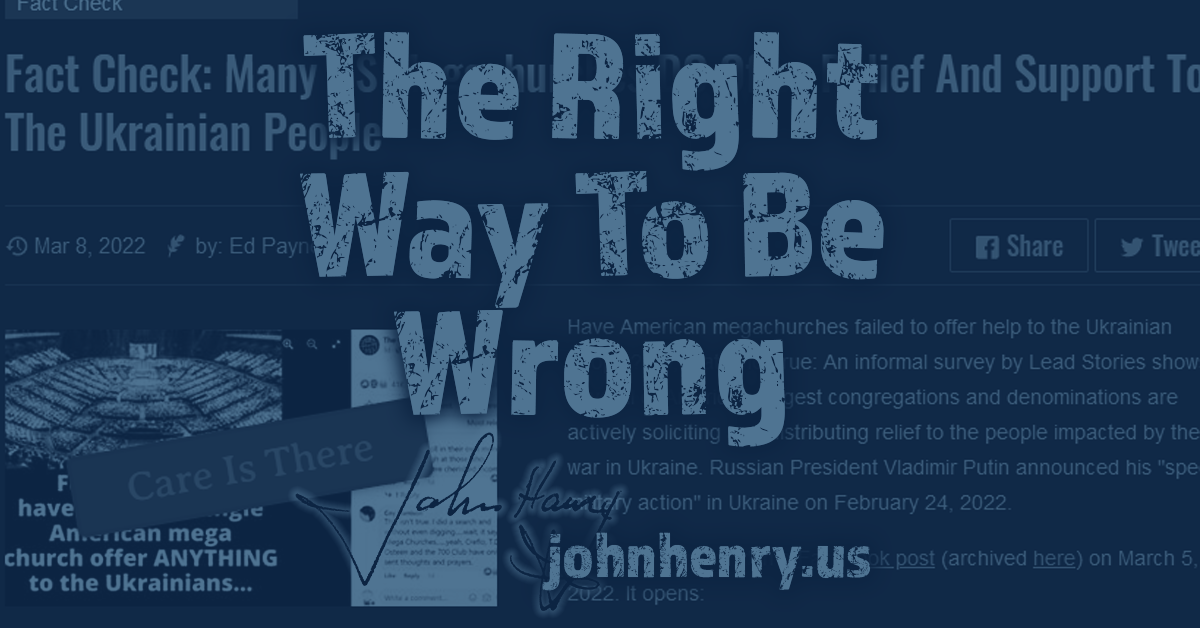We’re left then with one fundamental and disturbing question: for any given bit of information, how can we know what the truth really is?
Fortunately, although education has suffered greatly in the US over the last forty years (and maybe that’s a conspiracy too!), we still have the tools at hand to somewhat reliably weed our way through some of this stuff. Here are a few points for you to consider when weighing the evidence on any given questionable proposition:
- Is there objectively verifiable proof? – one way or the other, what are the facts as best as you can determine them?
- Have you checked your biases? – the number one place you can stop a bad or baseless theory in its tracks is with you not repeating it. Ask yourself why you want to support or oppose a given proposition. That’s not to say having a bias is bad; everyone does, whether they’re aware of it and honest about it or not. The point isn’t to “make sure you don’t have a bias.” The point is to make sure you’re identifying your biases and factoring them honestly in your critical thinking processes, and that very much includes making sure you apply the same degree of skepticism and analysis to things you like hearing as you do to things you don’t.
- “Follow the money.” – don’t necessarily take this literally, or even as just a basic metaphor. Consider who benefits and who gets hurt if you do or don’t believe something. Consider whether anyone – a group, individual, vested interest – is pressuring you to feel one way or the other about it. Understand what people’s interests are, and what your own are, so you can understand the potential motivations for disinformation
- Don’t get distracted. – consider that in any given situation, what you’re seeing as the dominant narrative or focus may be taking attention away from something that actually deserves that level of attention and isn’t getting it.
- Common sense – the aphorisms all apply: if it sounds too good to be true it probably is, be wary of appeals to irrelevant biases like sex appeal or national pride or identity in an ethic, sexual, gender, religious, age, or other demographic
- Get the tools! – Especially if you’re under 40 or so in the US, you probably didn’t get all the tools you need for good, clear evaluation of information sources in high school, and maybe even in college if you didn’t take a lot of communication-related courses.
One of the very best contemporary tools I can recommend is Robert Cialdini’s “Influence.” You should see an affiliate link (meaning I get a little bit if you order through that link) near this paragraph to the 6th edition on Amazon; at the time of this writing that edition is planned for release in a few weeks – the first substantial update since 5e in 2008 – but it’s not yet on the market. The previous edition was an excellent book used as a text for a class I took on social persuasion and influence in 2012, and it’s really fascinating – and more than a little scary sometimes – not only how susceptible we can be to compliance-gaining tactics, but how that remains true even when we know better. Again, you end up at that mirror. Cialdini’s “Influence” is a widely known and applied set of tools in the world of advertisers, marketers, MBAs, behavioral psychologists, sociologists, and more, and when you understand those tools and how they’re applied, you can see them everywhere. Many of us don’t even know we’re doing it when we are.
There are many resources to help develop your critical thinking and analytical skills out there, but for a single-book, reasonably easy to read and understand, that will rattle your preconceptions and get you thinking hard about what you’re doing, I can’t recommend anything more highly.
Conclusion
In the end there can be no question that media and information literacy, including the ability to parse through multiple meta-layers of disinformation and misinformation, will be critical life skills. Not all “propaganda” has a malicious motive; not all causes relying on noble motivations have noble motives.
That last part starts getting, again, into the question of the ongoing real-time, high-speed, self-aware evolution of the species to which I frequently refer in my writing and shows. For most of our history we’ve habitually reduced key questions to binary propositions – yes or no, black or white, up or down.
For the last few hundred years we’ve set the stage through philosophy and other endeavors for the elevation, wholesale, of the nature of our thinking to encompass a more spectral, multi-dimensional approach that is more in tune with the way the universe really functions, including understanding ideas like “place” and “purpose” in more effective and meaningful ways. I believe the near future of the species includes coming to real terms with concepts like compromise – what sort of behavior outside the norm are we willing to tolerate from our heroes, for example? Compare and contrast the cases of Gary Glitter and Jimmy Page and ask why one man has a career, and the other doesn’t, and whether that’s ethically legitimate. Don’t forget to get Lori’s perspective on the question.
Difficult and thorny questions that have a chance of not really leaving us feeling great no matter which way we go. But that’s what we’ve been equipping ourselves to handle for the last umpteen decades with literature and art and poetry and philosophy and the considerations of the Questions of the Ages.
Now we go from studying all this philosophy to truly applying it, so hitch up your getalong and dig in, kids, because it’s going to be a bumpy, confusing, and sometimes scary ride, but when it’s over you’ll be coming out into a much brighter world.













